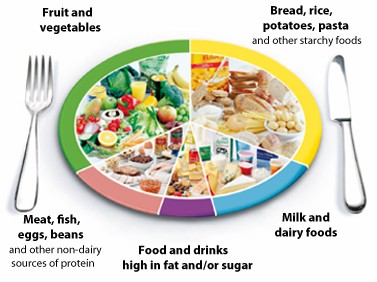Do you drink enough water?
Water makes up about two-thirds of the weight of a healthy body. Most of the chemical reactions that happen in our cells need water in order to take place. We also need water so that our blood can carry nutrients around the body and get rid of waste.
To stay healthy, it's important to replace the fluid we lose when we breathe, sweat or urinate. We get some fluid from our food but most comes from drinks.
The European Food Safety Authority recommends that women should drink about 1.6 litres of fluid and men should drink about 2.0 litres of fluid per day. That's about eight glasses of 200ml each for a woman, and 10 glasses of 200ml each for a man.
However, the amount a person needs to drink to avoid getting dehydrated will vary depending on a range of factors, including their size, the temperature and how active they are. So, for example, if you're exercising hard in hot weather you'll need to drink more.
All drinks count, including hot drinks such as tea and coffee, but water, milk and fruit juices are the healthiest. It is best to avoid alcoholic drinks.
Try to avoid sugary, soft and fizzy drinks that can be high in added sugars. These can be high in calories and bad for teeth.
Signs of dehydration
When our bodies don't have enough water, we are said to be dehydrated.
One of the first signs of dehydration is feeling thirsty.
If you think you may not be getting enough fluids, check whether you have any of these other common signs of dehydration:
- dark urine and not passing much urine when you go to the toilet
- headaches
- lack of energy
- feeling lightheaded
Find out more here.
A balanced diet
When it comes to a healthy diet, balance is the key to getting it right. This means eating a wide variety of foods in the right proportions and consuming the right amount of food and drink to achieve and maintain a healthy body weight.
A diet based on starchy foods such as potatoes, bread, rice and pasta; with plenty of fruit and vegetables; some protein-rich foods such as meat, fish and lentils; some milk and dairy foods; and not too much fat, salt or sugar, will give you all the nutrients you need.
Most adults in Britain are overweight or obese. That means many of us are eating more than we need, and should eat less. And it's not just food: some drinks can also be high in calories. Most adults need to eat and drink fewer calories in order to lose weight, even if they already eat a balanced diet.
The Eat-well plate
To help you get the right balance of the five main food groups, take a look at the eatwell plate:

The eat-well plate shows that to have a healthy, balanced diet, people should try to eat:
- plenty of fruit and vegetables
- plenty of starchy foods, such as bread, rice, potatoes and pasta
- some meat, fish, eggs, beans and other non-dairy sources of protein
- some milk and dairy foods
- just a small amount of food and drinks that are high in fat and/or sugar.
Try to choose a variety of different foods from the four main food groups.
Most people in the UK eat and drink too many calories, too much fat, sugar and salt, and not enough fruit, vegetables, oily fish and fibre. It's important to have some fat in your diet, but you don't need to eat any foods from the "foods and drinks high in fat and/or sugar" group as part of a healthy diet.